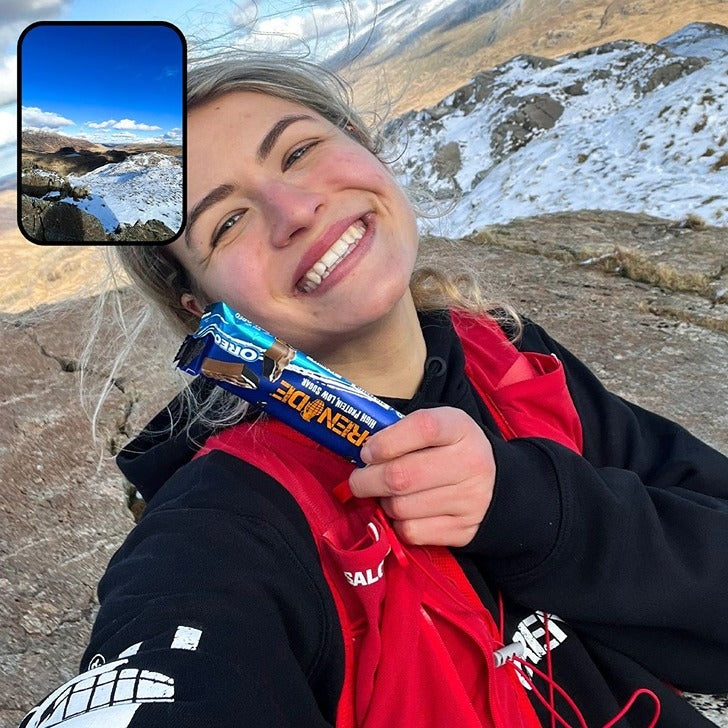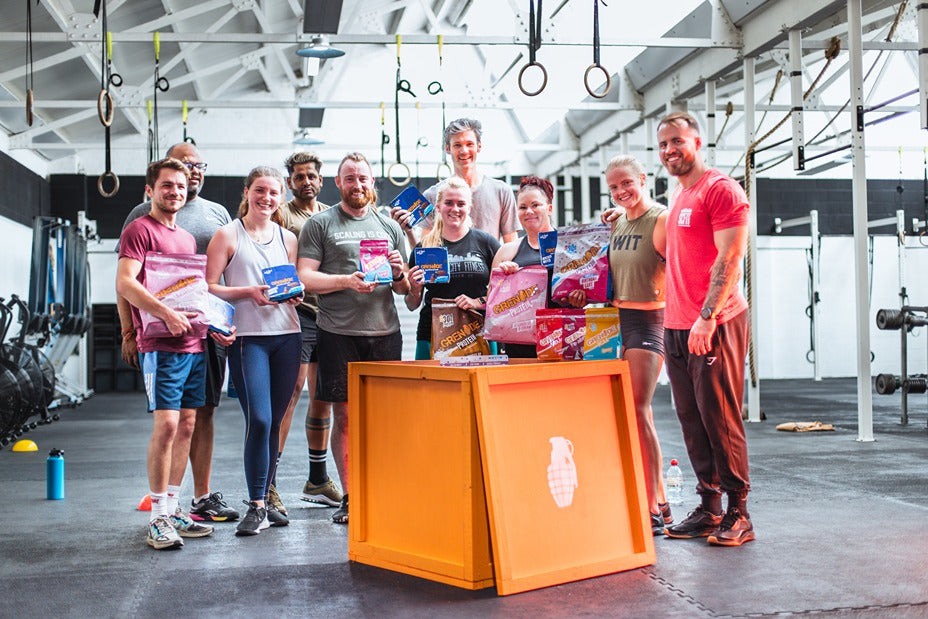training
How to Train for a Marathon
Grenade ambassador and serving soldier Farren Morgan recently completed the London Marathon. But this wasn’t any old marathon attempt, this was a Guiness World Record attempt, completing the feat carrying 34kg on his back, and even wearing military boots!
Finishing the gruelling task in six hours and 50 minutes, Farren knows a thing or two about training and nutrition, having served for six years and earning himself the right to wear the famous maroon beret and British Military Jump Wings. Here’s what he had to say about how to train for a marathon…
As the business owner of Farren Morgan Coaching, throughout all of my challenges I've followed my own Tactical Athlete training programme, which has already helped thousands of people join the armed forces. Typically, I train civilians into soldiers, helping them to progress and become better versions of themselves, pushing themselves mentally and physically.
How to Train for a Marathon
An example of my marathon training consists of around six or seven sessions per week for a duration of six months, roughly split up into four strength and conditioning sessions, one run, one weighted run and one flexibility session per week. This equates to around 15-20 hours of training a week, and anywhere between 15-50 miles on the road.
Not for the faint hearted, this program has enabled me to Get Shit Done and take on some pretty tough challenges: I've now completed three London Marathons, one marathon scaling the Trudos mountains in Cyprus, won the Cyprus Walkdown, and completed eight half marathons.

Marathon Nutrition
For me, I see food as fuel; it’s the building block for muscle repair, immune system function, and energy production. With that sentiment, going alongside my training, my marathon training diet sees me doing these four things consistently:
- Eating every two to three hours, without unhealthy snacking in-between.
- While a healthy balanced diet is key, ensuring I eat a solid amount of protein with every meal is vital. With any naturally lower protein meals, I’ll also supplement my diet with Grenade’s Protein Bars or Protein Shakes, also helping to satisfy my sweet tooth. Many people drastically undereat protein, despite it being the key macronutrient for optimal body composition.
- Eating vegetables with every meal. Just like protein, eating more vegetables with every meal is hugely important to me. Green vegetables in particular are incredible sources of energy for the body, along with the provision of huge amounts of micronutrients from plants.
- Eating carbohydrates based on activity. Everyone can and should have carbs in their diet. Without carbs, we’re missing out on some great performance and health potential. It makes sense to include carbs in your diet. It’s also clear that the carbohydrates we do include in our diets should provide the fuel for activity. By getting this input of energy in vs. out right, significant weight reduction can still occur.
Chances are you’ve read or been told to eat more protein before?
But why? Protein is needed for almost every vital function in your body, including helping to repair your muscles after a workout.
Basically the better you are at retaining and growing muscle mass, the better body composition you will have, which is why I supplement my diet with Grenade’s Protein Bars or Protein Shakes.
Here are three key reasons why you need to include more protein in your diet:
- It is a component of every cell in your body.
- Your body uses it to build and repair tissue.
- It is an important building block of bones, muscles, cartilage, skin, and blood.
Check out Farren’s training video below, and for more information on what protein is and what it does visit this blog here.





